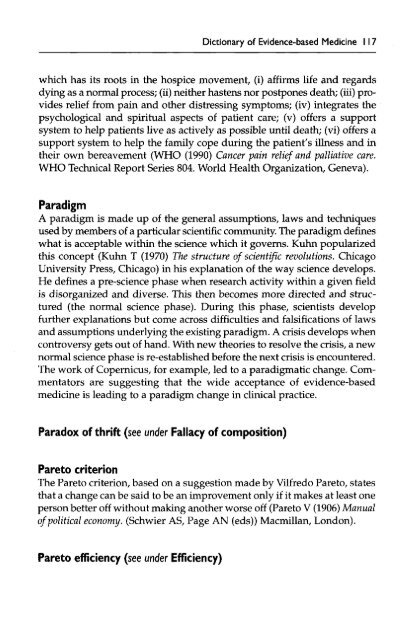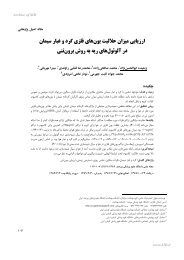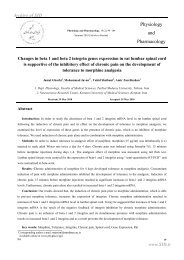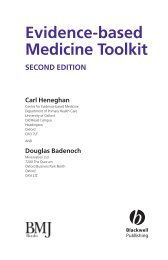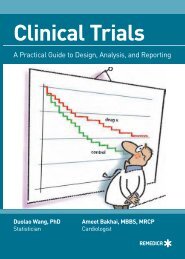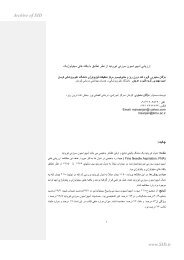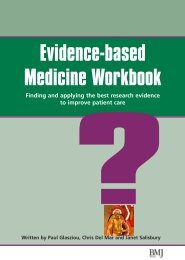Dictionary of Evidence-based Medicine.pdf
Dictionary of Evidence-based Medicine.pdf
Dictionary of Evidence-based Medicine.pdf
Create successful ePaper yourself
Turn your PDF publications into a flip-book with our unique Google optimized e-Paper software.
<strong>Dictionary</strong> <strong>of</strong> <strong>Evidence</strong>-<strong>based</strong> <strong>Medicine</strong> 117<br />
which has its roots in the hospice movement, (i) affirms life and regards<br />
dying as a normal process; (ii) neither hastens nor postpones death; (iii) provides<br />
relief from pain and other distressing symptoms; (iv) integrates the<br />
psychological and spiritual aspects <strong>of</strong> patient care; (v) <strong>of</strong>fers a support<br />
system to help patients live as actively as possible until death; (vi) <strong>of</strong>fers a<br />
support system to help the family cope during the patient's illness and in<br />
their own bereavement (WHO (1990) Cancer pain relief and palliative care.<br />
WHO Technical Report Series 804. World Health Organization, Geneva).<br />
Paradigm<br />
A paradigm is made up <strong>of</strong> the general assumptions, laws and techniques<br />
used by members <strong>of</strong> a particular scientific community. The paradigm defines<br />
what is acceptable within the science which it governs. Kuhn popularized<br />
this concept (Kuhn T (1970) The structure <strong>of</strong> scientific revolutions. Chicago<br />
University Press, Chicago) in his explanation <strong>of</strong> the way science develops.<br />
He defines a pre-science phase when research activity within a given field<br />
is disorganized and diverse. This then becomes more directed and structured<br />
(the normal science phase). During this phase, scientists develop<br />
further explanations but come across difficulties and falsifications <strong>of</strong> laws<br />
and assumptions underlying the existing paradigm. A crisis develops when<br />
controversy gets out <strong>of</strong> hand. With new theories to resolve the crisis, a new<br />
normal science phase is re-established before the next crisis is encountered.<br />
The work <strong>of</strong> Copernicus, for example, led to a paradigmatic change. Commentators<br />
are suggesting that the wide acceptance <strong>of</strong> evidence-<strong>based</strong><br />
medicine is leading to a paradigm change in clinical practice.<br />
Paradox <strong>of</strong> thrift (see under Fallacy <strong>of</strong> composition)<br />
Pareto criterion<br />
The Pareto criterion, <strong>based</strong> on a suggestion made by Vilfredo Pareto, states<br />
that a change can be said to be an improvement only if it makes at least one<br />
person better <strong>of</strong>f without making another worse <strong>of</strong>f (Pareto V (1906) Manual<br />
<strong>of</strong> political economy. (Schwier AS, Page AN (eds)) Macmillan, London).<br />
Pareto efficiency (see under Efficiency)


